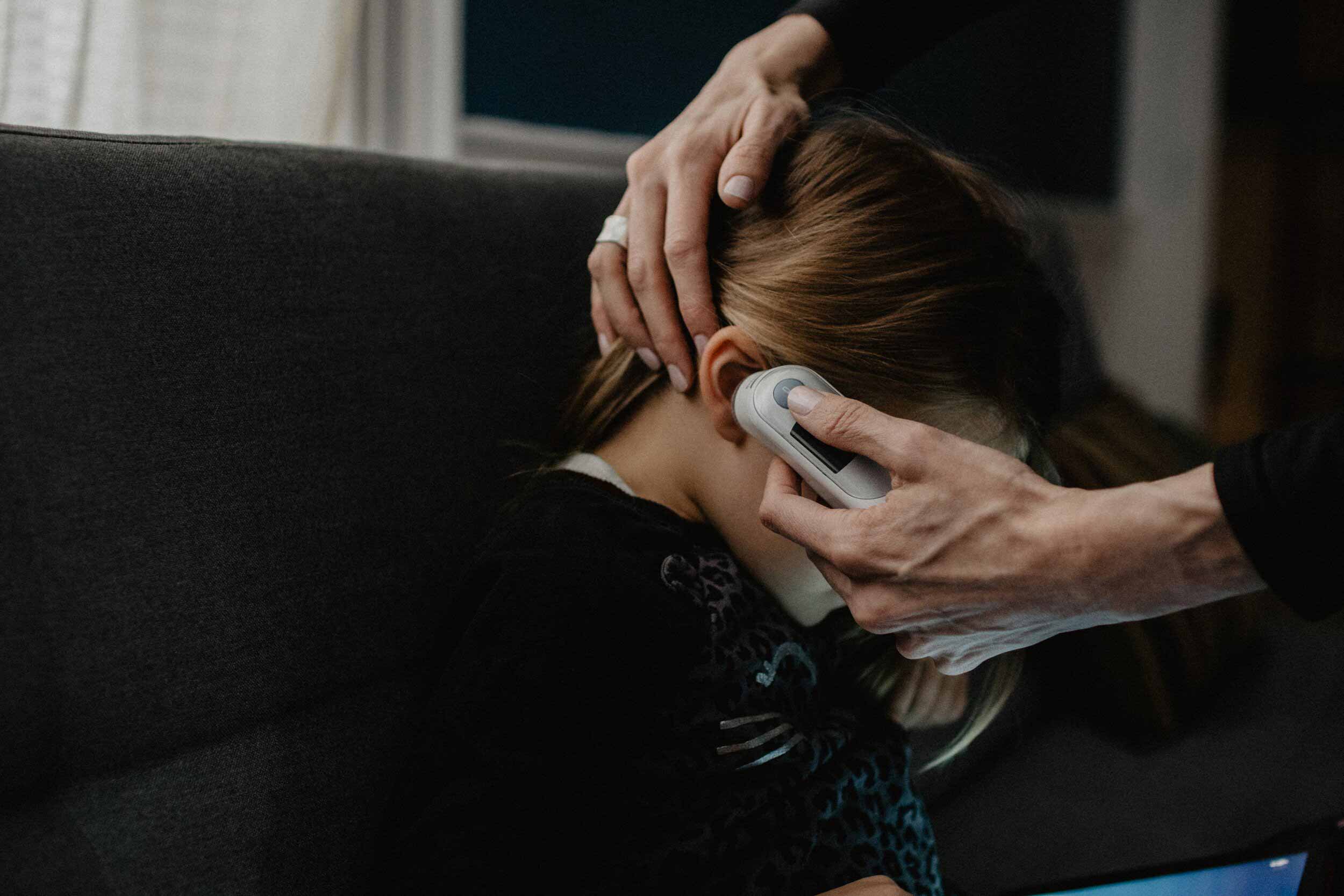Although at times scary, fevers in children are extremely common. A fever is your body’s way of fighting an infection, and in most cases, not dangerous or harmful in any way.
A fever is defined simply by a temperature of over 38 degrees. However, it’s important to remember your child might also experience the following symptoms alongside the higher temperature;
- shivering
- hot to touch
- feeling nauseous
- feeling fatigued
If your child is under the age of 3 months and has a temperature over 38 degrees, it’s best you check in with a doctor, even if they don’t have any other symptoms of illness.
Taking your child’s temperature is easy and shouldn’t cause them any discomfort or pain. Placing a digital thermometer under the child’s tongue or arm is one way of checking. Infrared forehead thermometers are also effective. Keeping a logbook of their temperature every hour is a great way to keep track of their fever and if it is improving or getting worse.
If the fever is the only symptom your child has, then there is no need to treat or lower the fever. However, if the fever is accompanied by other symptoms there are a few things you can do to keep your child comfortable.
- offer regular sips of a drink to keep them hydrated
- give extra breastfeeds or bottles if your baby is still drinking milk only
- paracetamol or ibuprofen can be given if your child is in pain or discomfort
- place a wet cloth on your child’s forehead
- keep an eye on them to make sure they’re not getting worse
While fevers themselves are not dangerous, there are certain symptoms that require emergency attention. If your child has a fever and;
- a stiff neck and sensitivity to light
- trouble breathing
- is unable to keep down fluids or appears dehydrated
- has a rash
- has pain that doesn’t go away with paracetamol or ibuprofen
- is unable to be woken or extremely lethargic
You should seek care from a G.P or the Epworth Emergency Department. The Children’s Emergency ward at Epworth Richmond has low waiting times and is staffed by experienced paediatric nurses and doctors around the clock.
Fevers can sometimes result in what is called a febrile convulsion or seizure. Often it’s when a fever spikes suddenly. While scary to witness, febrile seizures are not known to be dangerous or cause long term problems.
Remember, a fever is a normal part of childhood illness. If your child experiences other concerning symptoms or is under the age of 3 months please contact a doctor or visit the Emergency Department for care. And of course please take your child for a COVID-19 test if they’re experiencing any of the symptoms including fever.
14 December 2020

